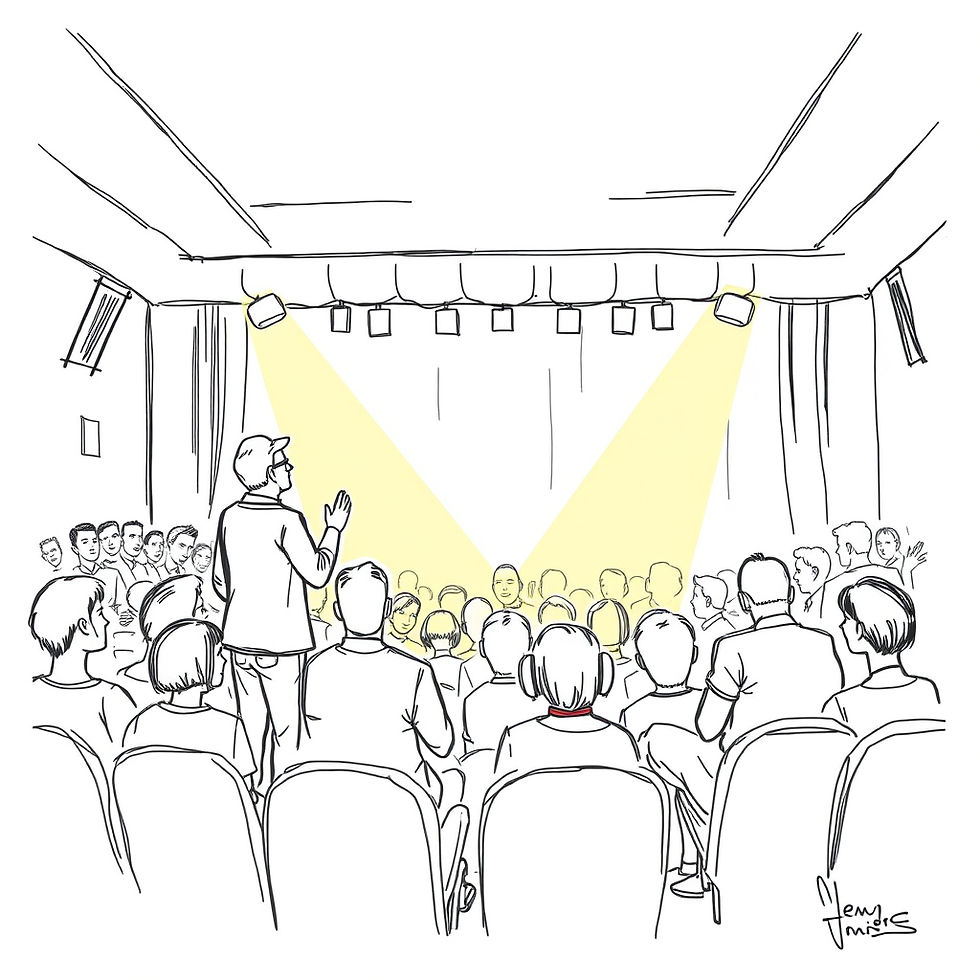Virtual Symposium: Understanding Indigeneity in South Asia (April 28-30, 2021)
- AAP
- Apr 27, 2021
- 3 min read

Virtual Symposium
Understanding Indigeneity in South Asia
April 28-30, 2021
Center for South Asian Studies
University of Hawai‘i at Mānoa
This year we want to explore Indigeneity, both as a concept and as a lived experience, its complex terms, discourses, and implications, resilience, knowledge, arts, and languages, its relationships to changing environments and global movements. Every year, our aim is to bring to the forefront and build a community of young artists, activists, and thinkers, who are doing innovative work springing from their own stories and experiments, from their quests, hopes, and convictions for a better future for all.
As we plan and hold this event, we see the COVID crisis intensifying once again in South Asia. We will address this situation to the best of our ability in each panel and session.
Please download the PDF below for webinar links and more information.
Contacts: csas@hawaii.edu and saib@hawaii.edu
Symposium Schedule
Wednesday, April 28
6:00 pm HST Featured Event: Seasons of Life
Film and Q&A by Dolly Kikon
7.00pm- 8.30pm HST
Introductory Remarks by Peter Arnade, Dean, College of Arts, Languages, and Letters.
The Question of Indigeneity in the Making of Bodoland, Assam
Dona Biswas, Dr. B.R.Ambedkar University
Being ‘tribe’, being ‘indigenous’: the politics of identifying among the Mizos of
northeast India
Roluah Puia, Indian Institute of Technology Roorkee, Uttarakhand, India
Indigenizing the Cultural Plurality of the Sümi Naga
Ngutoli Y Swu, Tezpur University, Assam, India
Thursday, April 29
7:45am Intro Remarks
8:00am HST Featured Event: Centering Our Indigenous Experience
Talk by Pasang Yangjee Sherpa
9.00am-11.00am HST
Indigenous Understandings of Environmental Sustainability and Policies
Ranjan Datta, Mount Royal University, Canada
Amritlal Thakkar - An “Intervention” to the “Tribal Question”
Maharshi Vyas, University of California, Santa Barbara
The Oraons of Chhotangpur: A Journey Through S.C. Roy's Anthropology
Sangeeta Dasgupta, Jawaharlal Nehru University, India
The Naga memorial monument and the aesthetics of Indigenous modernity in contemporary India
Akshaya Tankha, Yale University
4:00pm HST Featured Event: Art, Performance, and Social Justice
Dipankar Mukherjee and Meena Natarajan
Pangea World Theater, Minneapolis
5.00pm- 7.00pm HST
Performing Indigeneity, Gender, and Violence: The Nat Pwe in Myanmar and the Lai Haraoba in Manipur
Sumitra Thoidingjam, Jamia Millia Islamia, Delhi, India
Nature, Narrative and Poetry: A Conversation with Ao-Naga Ecological Ethics
Karilemla Longchar, Savitribai Phule Pune University (Previously at IIT-B,
Emory University, and University of Porto. Book: Ao-Naga Worldview: A
Dialogue (2015)
Moran-Mataks of Assam: A Historical Study in Transition from Tribalism to Neo-Vaishnavism
Rashmi Saikia, Jawaharlal Nehru University, India
Socio-cultural implications of religious conversion among indigenous nationalities in the rural mid-hills of Nepal
Luni Piya, Hiroshima University, Japan
7:30 pm HST Featured Event: Singing A Great Dream: The Revolutionary Life and Songs of
Khusiram Pakhrin
A film and Q&A by Bhakta Syangtan and Anna Stirr
Friday, April 30
7:00am-9:00 am HST Introductory remarks by Tarcisius Kabutaulaka, Chair, Pacific Island Studies.
Indigeneity in the Pacific Island Context.
Exploring indigenous ‘pasts’: Belonging and Loss among Adivasis of eastern India
Sanjukta Das Gupta, Sapienza Università di Roma, Italy
Seeking autonomy from the state: Dispossession and resistance among Adivasis of India
and Bangladesh
Dalel Benbabaali, University of Oxford, UK
From Colony to Country: Tribes and India’s Constitutional History
Nishant J. Gokhale, University of Cambridge, UK
Mulnivaasi Muslims in postcolonial India- an analysis of claims
Salwa Yahya, Freie Universitaet, Berlin
9:15am HST Featured Event: “I'm Iñupiaq+Pakistani. My heritage is in the Arctic region of
Alaska+South Asia”
Talk Story with Erica Purruq Khan
Cultural Specialist for Alaska Humanities Forum and former Hindi student at UH Manoa
4:00pm-5.30pm HST
Adivasi settlement towards a transformed social environment: A case study from
Contemporary Kerala
Nithya K, TISS Mumbai, India (previous work on challenges and negotiations of elected Dalit women representatives)
Rationalities and Implications of Categorisations of Adivasis: A Study on Particularly
Vulnerable Tribal Groups in Kerala
Kunhikrishnan Velutholy, Kerala State Planning Board, Government of Kerala,
Central University of Kerala, India
Caste and Indigeneity: Adivasis negotiating Caste in Central India
Pankhuree Dube, Middle Tennessee State University
6.00pm HST Featured Event: Songs of the Lambada Bhat of Telangana
Facilitated by Raju Nayak - The English and Foreign Languages University, Hyderabad.



Comments